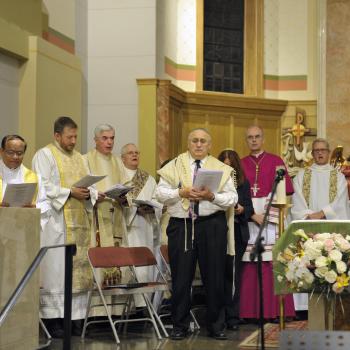Men do it differently from women — and shifting demographics suggest there will be a lot more of them in the years to come.
The New York Times looks at this phenomenon, and how hospitals and hospices are working to address it:
The loss of a loved one is a profoundly heartbreaking experience, but it is not the same for everyone. Research increasingly suggests that men and women experience grief in different ways, and the realization has bolstered a nascent movement of bereavement groups geared to men throughout the country. Many of them are affiliated with hospitals and hospice centers.
Concern about reaching men in grief has gained new urgency with shifting demographics. The number of men age 65 and older increased by 21 percent from 2000 to 2010, nearly double the 11.2 percent growth rate for women in that age group, according to census figures. As the gender gap in life span narrows, experts suggest that more men will be facing the loss of loved ones, particularly spouses.
Many will be not be prepared for the experience. The loss of a spouse often is crushing for men physically as well as psychologically. In a 2001 paper published in The Review of General Psychology, psychologists at the University of Utrecht in the Netherlands confirmed earlier data showing widowers have a higher incidence of mental and physical illness, disabilities, death and suicide than widows do. While women who lose their husbands often speak of feeling abandoned or deserted, widowers tend to experience the loss “as one of dismemberment, as if they had lost something that kept them organized and whole,” Michael Caserta, chairman of the Center for Healthy Aging at the University of Utah, said by e-mail.
The Harvard Bereavement Study, a landmark late 1960s investigation of spousal loss, found that widowers experienced the death of a wife as a multifaceted tragedy, a loss of protection, support and comfort that left many at sea. The men in the study relied heavily on their wives to manage their domestic lives, from household chores to raising their children, the researchers noted.
The grief of men is compounded, Dr. Caserta added, by the fact that so many have been reluctant to directly address real feelings of deep sadness; until recently, men were expected to be emotionally controlled and inexpressive. Simply persuading grief-stricken men to attend a bereavement group is still no small challenge.
“While there’s strong indication that grief therapy helps men, historically men generally don’t join groups,” Phyllis Silverman, a grief researcher and an author of “Widower: When Men Are Left Alone,” said in a telephone interview.
There are also differences in the length of time men grieve, compared with women, and how long it takes to move on. An old axiom that “women mourn, men replace” turns out to be untrue.
“It used to be thought that men grieve acutely and heal more quickly, and that women grieve chronically over a longer time period,” said George A. Bonanno, a clinical psychology professor at Columbia University in New York.
But now, Dr. Bonanno said, many researchers believe that grief follows a more complex pattern in both men and women.
“No matter what sex, we oscillate between positive and negative emotions, between waves of sadness about the loss and hope for the future,” he said in a telephone interview. “This can be frustrating for men, who often seek the ‘quick-fix’ approach.”












